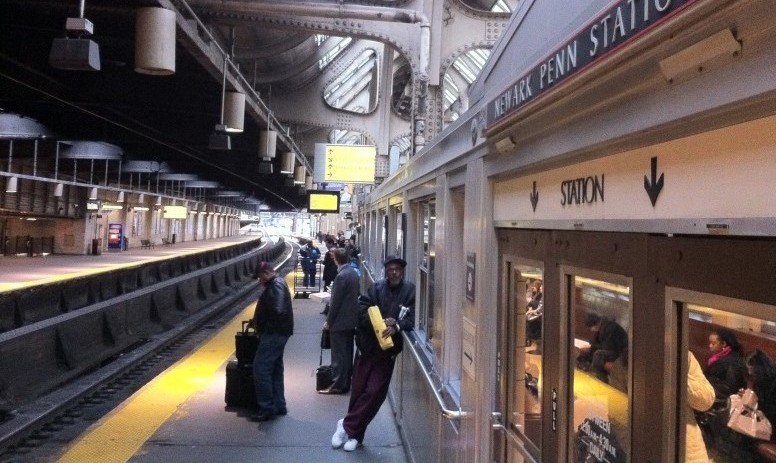There must be something that the NJ Transit Board of Directors should be doing, right?
Governor Christie and the legislature failed to reach an agreement on time to avoid bankrupting the Transportation Trust Fund this past June. Before the dust even settled, the governor ordered a shutdown of all non-essential TTF-funded projects, including New Jersey Department of Transportation and NJ Transit projects.
NJ Transit’s July Board meeting usually consists of approving new fiscal year budgets, so it was no surprise when that meeting was cancelled. But what about the following two meetings? Why were those cancelled?
The dearth of information raises some crucial questions about NJT’s current situation. How is the agency operating under the current fiscal constraints? What projects require emergency funding? How about an update on the stalled projects? Or an opportunity for the public to comment?
The stalemate in Trenton concerns the capital budget, but that distinction is less clear when it comes to NJT’s fiscal needs. Since 1990, the agency has used its capital funds to meet its operating budget shortfalls. A mere $6.5 million was transferred the first time, but since 2005, the practice has ballooned to $300 million in transfers every year.
Let’s put it this way: In July 2015, the NJT Board adopted a $2.1 billion operating budget. This included a $450 million capital-to-operating transfer. That’s 22 percent of the operating budget jeopardized by the transportation funding deadlock right off the bat.
Lawmakers in Trenton have enabled the funding stalemate to drag on for 77 days as of today. Senate President Stephen Sweeney even said it could last well into November.
One would hope that NJT has an action plan to ensure that the riders who make 928,494 weekday trips can continue to get to work, school and anywhere else they need to go while their elected leaders crawl towards a resolution. And it’d be reassuring if NJT would let its customers in on their plan to keep trains and buses moving, you know, just in case those customers suddenly find themselves suddenly needing to “use Uber” instead.
Celebrate the region’s biggest and boldest recent transportation initiatives at TSTC’s 2016 Benefit on September 27. Get your tickets here.


[…] The New Jersey Transit Board Has Stopped Holding Meetings (MTR) […]
[…] “Radio Silence” From NJTransit During Transpo Funding Shutdown (TSTC) […]
“Let’s put it this way: In July 2015, the NJT Board adopted a $2.1 billion operating budget. This included a $450 million capital-to-operating transfer. That’s 22 percent of the operating budget jeopardized by the transportation funding deadlock right off the bat.”
How does that compare with “reimbursable” operating expenditures at the MTA?
Since 2008, the Legislature has reduced its commitment of operating funds for NJT by about 90%. NJT needs operating funding, as does New Jersey’s community transportation for senior citizens and persons with disabilities. The TTF is a capital fund and, if the legislature and the administration in Trenton had funded the operating side of NJT properly, the impasse over the TTF would not constitute a cause for concern about the continuing operation of NJT.
The Legislature has not ignored the state’s transit riders, though. It passed A-227, which was originally designed to require NJT to give notice to the public and hold hearings before cutting service. Last September, NJT eliminated the last trains on several lines without notice, which required riders to leave New York City and other places substantially earlier than had previously been required. We, as advocates for the riding public, had called for NJT to notify the public and hold hearings before cutting service in the future. During the course of the legislative process, the Legislature changed the bill to allow NJT to cut service by as much as two hours without notice to the public or a hearing.
The last train on the North Jersey Coast Line going south of Long Branch on Monday through Friday nights had previously left New York Penn Station at 1:00. Now it leaves at 11:18, one hour and 42 minutes earlier. Under the original 1979 statute, riders could have argued that a change in curfew of such magnitude constituted a “significant curtailment” of service, which was not allowed. They cannot make that argument any more. NJT is now allowed to make such service cuts at will, with no accountability to the riding public. All transit riders can now be subjected to unpleasant surprises whenever schedules change.
This is not a matter of partisan politics. The vote of both houses was essentially unanimous. Legislators of both parties intentionally changed a beneficial proposal and enacted a very different one, which will make life much more difficult for transit riders, especially those of us who depend on NJ Transit for our basic mobility. None of the motorists in the Legislature who voted for the bill will be required to live with the consequences of their action.
DAVID PETER ALAN
Chair, Lackawanna Coalition
[…] earlier this week at the NJ Transit Board of Directors’ first meeting since June, agency veteran Steve Santoro was named executive director. Santoro’s appointment […]